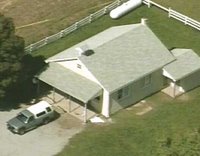-- Visual literacies are great at stimulating reader response, right?
- What did you learn in the doing?
I learned that using iMovie is an experience in and of itself. The little technical issues, like not being able to add music tracks after compressing the file into Quicktime, was frustrating, and fortunately, I had a previous version available to re-adjust with music included ("La Belle Dame" went through numerous revisions as I experimented with form). I also learned that hypertext and flash poetry were not what I was doing. So, in the interest of having a definitive project, I created my own type of poetry using visual stimulation of images, music, and transitions to create a more powerful viewing of three poems. I am pleased I was successful at that. Also, I learned that creating a companion website using Google Pages was quite easy. The only problem I am having is uploading my monstrous files onto the pages so that the poems can be viewed outside of a mac computer.
- What more would you like to learn?
I would like to learn how to more successfully compress my files for uploading to my website. There has to be an easier way to do that. Also, I would like to learn more about what research has to say about the effects of using visual, audio, and literal stimulation of literacy in conjunction with student understanding of more complex texts. I know that this form of presentation of poetry is more accessible, but I want to know what the research has to say about it.
- Pedagogical Applications?
I absolutely cannot wait to use these poetic interpretations with Jacqueline's class in the spring. I think that it will be a better way to introduce such dense poems and ideas. I also think it will be great for the students to create their own versions of the poetry they will write, using visual/audio applications to show an interpretation of their poem(s). This will also provide a forum for discussing the ways that interpretation influences choices on music, images, and overall presentation of the poems.
- What would I change/do differently/add/etc.?
I'm not sure I would change much, except for allowing for more drafting of the actual iMovies. Because I was afraid of losing my work, I tried to do a lot in one sitting, and save quickly to disc. "La Belle Dame" is the roughest poem, and the words go by rather quickly, but that kind of influences the reading I had of the poem, so it works as a second draft. "Mutability" is an experiment on transitions and images, and "To A Skylark" is my final perfection (if there is such a thing) of my skills. "Skylark" is much more structured, and shows my proficiency in developing a story in the images alone. It is also much longer (originally, I had it around 10 minutes, but I cut it down to around 8, which was a test of my editing skills). I think I would have begun my website sooner. It was sort of an afterthought, and I worked on it relentlessly for a couple of days, but the informative sections, about the Romantics and the time period, need to be comprehensive and (somehow) interactive. I had thought about a WebQuest, but wasn't sure exactly where to start with it. I will think about it more over break.

Though I know I vented to a couple of people Tuesday after the presentations, I need to do this in a more public forum so I will feel better and maybe evoke some change for the next time this class is taught.
As one of the last people to present on a long (long) night of presenters, I felt incredibly uncomfortable. Each person before me, excepting a few, flagrantly disregarded the time limit imposed on each presentation (8 minutes, was it?). Some topics were as long as twenty minutes. And as the night wore on, I felt like people were anxious and ready to leave, though not everyone had shared. So, by the time I presented, the entire class was gathered, waiting to leave. Apprehension and pressure from the class was expected, but it practically palpable. My presentation, including my short blurb on my website, lasted five minutes. If that. In relative comparison with others, I was definitely cut short by an unanimous decision by the group to leave as soon as possible.
I know that everyone wanted to share EVERYTHING that s/he had done this semester, but if there is a time limit, it should be enforced, so not to slight anyone at the end. I had planned to share more, but felt if I had, people might have resented my using more of their time, and yet, others had done the very same thing earlier in the night.
If anything can be learned from this situation, and I have to believe that each problem in life presents us with lessons to learn from, presentations need ENFORCED time limits. A timer, or an accurate watch would do. Rather than have people feel slighted or pressured, it would be best in future to have more structure, and more time, at the end of the semester for presentations that are worth so much, both for the course, and for each of us personally.
** On a positive note, I really wished I could have seen EVERYONE's presentations!!

 logically-Savvy to Where do you put the floppy disk in this computer? In this spectrum, there are markers, points that determine how far you are. Some of the markers may be “can successfully complete an iMovie in a graduate class” and other may be “likes wikis, but doesn’t know how to incorporate them in a meaningful way.” However, the difficulty with this path, is that there is never a final destination. There will never be a spot on this path that says: “You made it! You know everything about technology that there is to know!” Because five seconds later, new technologies, new programs, and new ideas will have been created, and all of a sudden, your newly-acquired knowledge is obsolete. And then, you start over again. From the beginning.
logically-Savvy to Where do you put the floppy disk in this computer? In this spectrum, there are markers, points that determine how far you are. Some of the markers may be “can successfully complete an iMovie in a graduate class” and other may be “likes wikis, but doesn’t know how to incorporate them in a meaningful way.” However, the difficulty with this path, is that there is never a final destination. There will never be a spot on this path that says: “You made it! You know everything about technology that there is to know!” Because five seconds later, new technologies, new programs, and new ideas will have been created, and all of a sudden, your newly-acquired knowledge is obsolete. And then, you start over again. From the beginning.




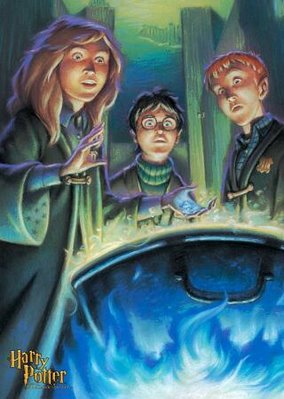


 iMovie: Looking back on all of that frustration, I think it was definitely well worth it. My efforts seemed to have paid off, and it was interesting to put a new spin on "seeing" my town. The use of poetry in addition to the visuals was able to create an intriguing mood/tone that I think quite clearly reflects one of the many ways in which I see my home. *Sigh* It was hard work, though.
iMovie: Looking back on all of that frustration, I think it was definitely well worth it. My efforts seemed to have paid off, and it was interesting to put a new spin on "seeing" my town. The use of poetry in addition to the visuals was able to create an intriguing mood/tone that I think quite clearly reflects one of the many ways in which I see my home. *Sigh* It was hard work, though.




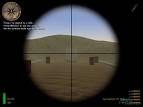



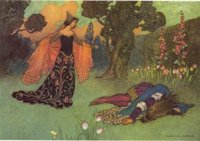




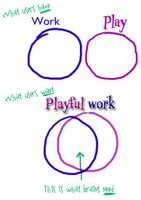


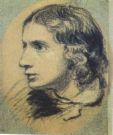
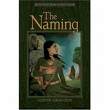 Since the
Since the 


